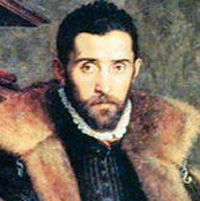Discourses on the Heroic Poem (Excerpts): An Overview
In the first book, Tasso follows an Aristotelian procedure to formulate a definition of epic. And this definition is, in some extent, parallel, and is contrasted to Aristotle's definition of tragedy. The aim of the book one is to set forth a definition as the basis for a general theory of epic.

Torquoto Tasso (1544-1595)
Thus, he begins this book by asking what the idea of a heroic poem is and by raising the question of poetry in general. For him, the poetry's purpose is to help men by the example of human deeds and to provide pleasure directed towards usefulness that has human virtue as its end.
Tasso locates the epic under poetic imitation. He employs imitation in the broader sense to include narration, but contrasts it with tragedy with respect to mode of imitation. The end of tragedy as mentioned by Aristotle is purgation, but epic, according to Tasso, moves its reader to wonder. Epic as defined by him is an imitation of a nobler action, great and perfect, narrated in the loftiest verse, with the purpose of moving the mind to wonder and thus being useful. At the conclusion of the last book, Tasso offers a contrast between epic and tragedy by saying that there are two ways of improving us (through example). One is inciting us to good works by showing the reward of excellence and an almost divine worth, and the other is frightening us from evil with penalties. He further says that the first is the way of epic and the second that of tragedy. And because of the second reason, tragedy is less useful and gives less delight than epic.
Tasso's work also does have pragmatic importance like Castelvetro. He assumes that poetry's purpose is to help and see by the examples of human deeds and to provide pleasure directed towards usefulness. He places, epic under poetic imitation in the broader sense.
